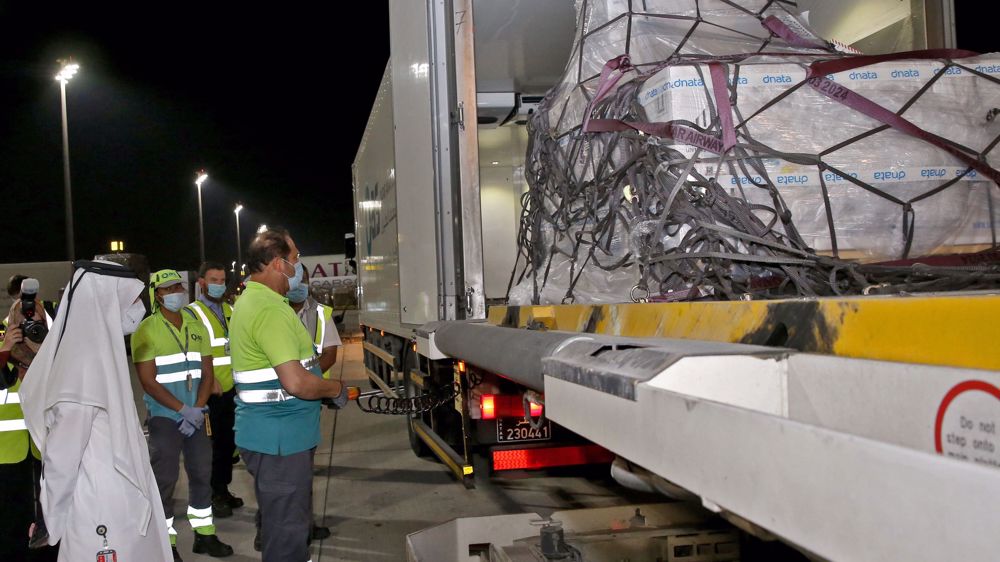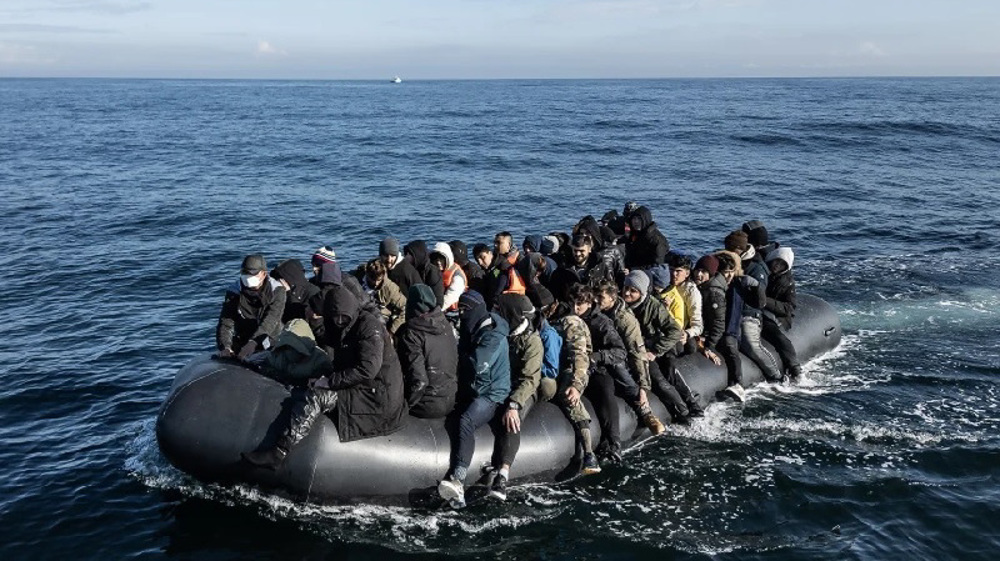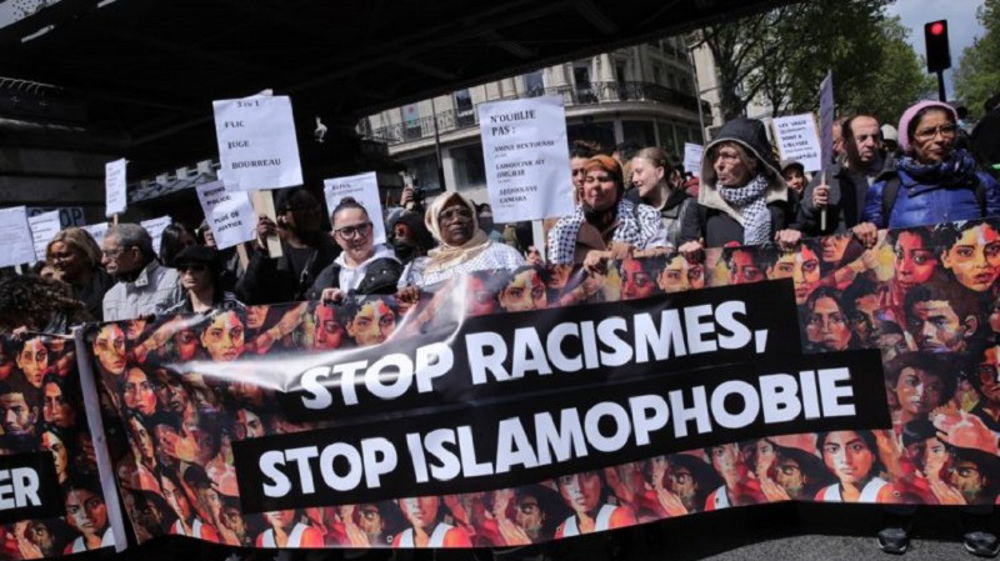Saudis in 2017 planned Qatar coup, now they want to be friends
In June 2017 Saudi Arabia, the United Arab Emirates, Bahrain and Egypt severed diplomatic, trade, and travel ties with Qatar, a tiny, yet gas-rich country in the Persian Gulf, having accused Doha of funding terrorism and fostering instability in the region.
In a rather surprising move, Saudi Arabia is trying to resume relations with its neighbor Qatar after more than three years of tension.
In early December 2020, Riyadh announced that a resolution is “within reach” with this tiny yet gas-rich country. But there are a number of questions that need to be addressed. What has made the Saudi kingdom review its policies on Doha at this point in time?
Is Riyadh really seeking a longstanding friendship with Qatar? And is the resolution really “within reach”? And what challenges might await the Saudis? While many are hailing the Saudis’ initiative as a huge breakthrough, others think there's a long way to go.
Since June 2017, Qatar has been under a crippling blockade from Saudi Arabia, the United Arab Emirates, Bahrain and Egypt. But now not the whole anti-Qatar Quartet, but only Saudi Arabia is trying to reach out to Doha.
The world is changing dramatically. 2020 has been an amazing year. At one point I recall the price of oil was actually, they would pay you a certain amount to take a barrel of oil, it actually went below zero if you like. So the whole order of things is dramatically reshaped pretty much to the disadvantage of Saudi Arabia,
Anthony James Hall, Editor in Chief, American Herald Tribune
In its dying days, the Trump administration is busy keeping all its allies in the Persian Gulf united against Iran.
Outgoing U.S. Secretary of State Mike Pompeo and Trump’s Middle East advisor Jared Kushner have both visited the region for this purpose.
Saudi have own reasons for détente
But the Saudis have their own reasons for détente. The kingdom’s traditional status in the Arab world has been damaged after its undeniable role in normalizing ties between some Arab states and the Israeli regime.
There are even opposing views inside the kingdom towards normalization with Israel, revealing fault lines among different political clans.
The concept that we're seeing some kind of “normalization” in the Middle East, as it seems that Trump's term is coming to an end. And Trump does seem to be playing a big role in this. I think that is a misrepresentation. The Abraham accords suggest to me that the real agenda is to establish a more solid military alliance between the Gulf powers, the monarchies in the Gulf region, the Arab monarchies and. and Israel. And this is not that has nothing to do with normalisation. It's a, it's actually a war agenda. That is being advertised in the public relations language of normalization.
Anthony James Hall, Editor in Chief, American Herald Tribune
Moreover, Riyadh will no longer enjoy the protection of its greatest supporter, the Trump administration and has not received any encouraging signals from the Biden Administration. This shaky position has made the Saudi officials take on more cautious polices in the region.
KSA bracing for new administration in Washington
By modifying its foreign policy goals, the kingdom is in fact bracing itself for the approaching change of administration in Washington and a possible new order in the region. Moreover, a rapprochement with Doha means the Saudis can concentrate more on the Yemen War, which has turned out to be a quagmire for the Saudi army.
And I think Saudi Arabia, you know has to manoeuvre to not become a kind of pariah in in the world. It's attacks and assaults on Yemen, and the Houthis, in Yemen, have been, you know, negatively viewed in the international community, and properly so Saudi Arabia has, could I say a big PR problem that it has to address.
Anthony James Hall, Editor in Chief, American Herald Tribune
That said, little progress has been made so far on resolving the dispute as the trade and travel embargo on Qatar has not been lifted yet.
Meanwhile, Qatar Airways, the country’s flagship carrier, has been suing Saudi Arabia and other blockading partners in the Persian Gulf over the closure of their airspace to the Doha-based airline.
The airline is reportedly seeking at least $5 billion from the states for compensation related to the closure.
In fact, there are plenty of sticking points for the Saudis. The most serious challenge they are faced with is how to get the other blockading states on board.
Amid silence from the Emiratis - who are by many accounts as the main instigators of the blockade - a satisfactory solution seems elusive.
After about four years, cracks are becoming visible in the anti-Qatar alliance, with Riyadh wanting to end the blockade while the UAE insists on it.
Much to the Saudis’ dismay, Bahrain and Egypt are also reportedly inclined to Abu Dhabi in this case.
According to Mithat Rende, a former Turkish ambassador to Qatar, "The Emiratis don't even mind competing with Saudi Arabia, showing their willingness to overtake the kingdom."
This is something of a mystery to me. But UAE, Egypt and Bahrain must have points in common that cause them to see, Qatar, in a, in a different light, perhaps, they're not party to are privy to the internal dynamics of what's going on in Saudi Arabia that is pulling Saudi Arabia, in this direction. Could it be that there is actually some chance of a kind of reconciliation of Iran and Saudi Arabia through Qatar as an intermediary? Perhaps this is an agenda that UAE Egypt and Bahrain aren’t in a position to cope with right now.
Anthony James Hall, Editor in Chief, American Herald Tribune
While some confidence-building steps might be taken in the run-up to the Persian Gulf Cooperation Council’s summit, it seems that the source of tension is still in place.
At the core of the crisis are Qatar’s ties with Iran; its alleged support for the Muslim Brotherhood; and its alleged use of the state-owned news network Al Jazeera to spread the Brotherhood’s message, inciting popular uprisings.
The Qataris have sent no signals that they are going to give in to these demands which are among Saudi Arabia’s 13 demands over the blockade.
Saudi Arabia has a cause to seek friendlier relations with Qatar. They speak about this through the language of normality. Bringing back normality but nothing is really normal about the situation we're dealing with these days.
Anthony James Hall, Editor in Chief, American Herald Tribune
Perhaps Qatar's bigger enemy than the Saudi Crown Prince Mohammed bin Salman is the UAE Crown Prince Mohammed bin Zayed who is deeply mistrustful of Doha.
In the words of Kristian Coates Ulrichsen, a fellow for the Middle East at Rice University’s Baker Institute for Public Policy, “I don’t at the moment see that the UAE is on board and it might be a difficult sell for the Saudis to persuade the UAE to sign up to a final agreement or even a preliminary one.”
All in all, even if this current standoff is resolved, given the number of issues likely to remain unresolved, there is high potential for future conflict and perhaps another crisis in the future.
Columbia, Yale students bent on ending US support for Israeli genocide
VIDEO | Genocide in Gaza
Iran calls on BRICS to play role in stopping Israeli crimes
President Raeisi’s historic visit opens new chapter in Iran-Pakistan ties
Russia: Poland’s talks on hosting US nuclear weapons ‘dangerous’
VIDEO | Israel’s genocide bounty
India’s home minister vows to end Muslim reservation if his party wins
UN expert calls for arms, oil embargo against Israel
















 This makes it easy to access the Press TV website
This makes it easy to access the Press TV website